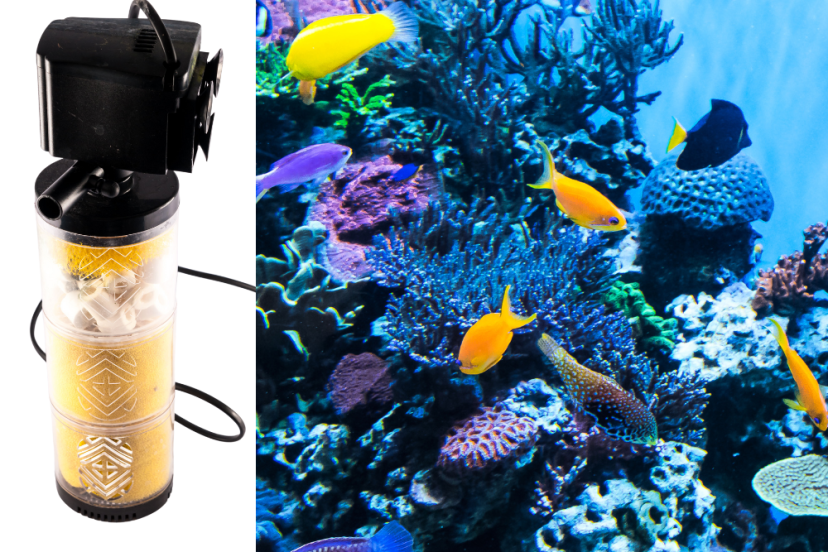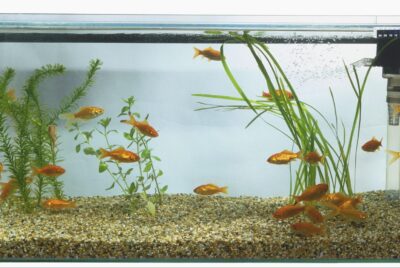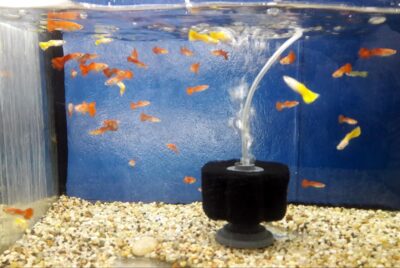Water Filtration Systems – A Guide
As a fishkeeping enthusiast and advisor, I know the importance of water quality in creating a healthy environment for our aquatic pets. One way to maintain good water quality is by using water filtration systems. In this article, I will share some helpful suggestions and reasons why you should consider using a water filtration system in your fish tank.
Introduction to Water Filtration Systems
Water filtration systems are devices that help to maintain water quality in fish tanks by removing impurities and toxins. They play a vital role in keeping fish healthy and happy, and in creating a thriving aquatic environment. Without proper filtration, harmful levels of ammonia, nitrites, and nitrates can build up and cause stress, disease, and even death to your fish. To ensure your water quality is optimal, you might want to consider using a protein skimmer or a protein skimmer pump.
Types of Water Filtration Systems
You can choose from three different filtration systems including a biological filtration system that you can easily install with a DIY protein skimmer. There are three types of water filtration systems available:
Biological Filtration
Biological filtration is a natural process that uses beneficial bacteria to break down organic waste and convert it into less harmful compounds. It is the most important type of filtration, as it helps to maintain the nitrogen cycle in your aquarium.
Advantages of biological filtration include:
- Maintenance of the natural environment required by your fish
- Improved water quality
- Healthier and happy fish
Disadvantages of biological filtration include:
- Requires a water pump or filter to circulate water and keep it oxygenated.
- Takes up a lot of space.
You can maintain the natural environment needed for your fish using a protein skimmer in a sump for your freshwater aquarium. And for those with saltwater tanks, a protein skimmer saltwater can be considered.
Mechanical Filtration
Mechanical filtration is the process of mechanically filtering out particles and debris in the water column. It is an essential process that removes excess food and other debris before it decomposes and adds to the organic waste in your aquarium. Mechanical filtration systems, like a hang on back protein skimmer, can remove excess food and other debris before it decomposes.
Advantages of mechanical filtration include:
- Improved water clarity
- Reduced maintenance requirements
- Reduced risk of clogged filters
Disadvantages of mechanical filtration include:
- Does not remove dissolved impurities
- May require additional filtration systems for complete purification of water.
- High filtration media replacement cost.
Chemical Filtration
Chemical filtration is the process of using filter media to remove dissolved impurities from water. It is often used as a supplemental filter or for tank-specific filtration requirements.
Advantages of chemical filtration include:
- Removes impurities that can’t be removed by mechanical or biological filtration.
- Helps to create conditions for specific tank requirements.
- Enhances water quality.
Disadvantages of chemical filtration include:
- Requires frequent replacement of filter media.
- May adversely affect the pH balance of the water.
- Can be expensive to use.
These systems are excellent for specific tank requirements, such as when using an external protein skimmer.
Factors to Consider When Choosing a Water Filtration System
Before choosing a water filtration system, several factors must be considered, including tank size, type of fish, number of fish, budget, and maintenance requirements. Before making a decision, you may want to consider several factors like the size of your tank and whether it’s a saltwater fish aquarium or a freshwater fish aquarium.
Popular Water Filtration Systems
Some popular water filtration systems are Canister Filters, Hang-on-Back filters, Undergravel filters, and Power Filters. Some of the popular filtration systems include Canister Filters and aquarium sump pumps, among others.
Canister Filters
Canister filters are powerful, external filters that are ideal for tanks with high bio-loads or for larger tanks. They work by providing comprehensive filtration for both Mechanical and Biological Filtration. These are external filters ideal for tanks with high bio-loads, much like using a Nano protein skimmer.
Some key pros and cons of canister filters include:
- Extremely Powerful Filtration
- Easy to install and maintain
- Ideal for large tanks
Disadvantages of canister filters include:
- Higher cost
- More challenging to clean
Hang-on-Back filters
Hang-on-Back filters are attached to the back of your aquarium and provide excellent biological and mechanical filtration. They are ideal for aquariums that require minimal filtration or require an HOB for tank-specific filtration requirements.
Some key pros and cons of Hang-on-Back filters include:
- Easy to install and maintain
- Inexpensive
- Compact design.
Disadvantages of Hang-on-Back filters include:
- Low power
- Takes up a significant amount of space.
Undergravel filters
Undergravel filters work by creating a simple but effective biological filtration system in the tank. They are mainly used in smaller aquariums and ideal for aquariums with low stocking density or where tight filtration accuracy is essential.
The key pros and cons of undergravel filters include:
- Affordable to purchase and maintain
- Simple design
- Easy to maintain
Disadvantages of undergravel filters include:
- Low power
- Lack the required biological filtration.
Power Filters
Power filters are internal filters that provide excellent mechanical and chemical filtration, making them ideal for small tanks with minimal or specific filtration requirements.
The key pros and cons of power filters include:
- Affordable to purchase and maintain
- Effective mechanical filtration
- Easy to install and maintain
Disadvantages of power filters include:
- Can be noisy
- Lack the required biological filtration.
Maintenance of Water Filtration Systems
Maintaining your water filtration system is essential for ensuring optimal aquarium conditions, long service life, and healthy fish. Some critical maintenance practices include cleaning the filter, media replacement, and water changes. Generally, mechanical filtration is best serviced monthly, biological filtration is serviced yearly, and chemical filtration must be replaced as indicated on the manufacturer’s guide.
Maintaining your system is crucial for a healthy aquarium, and this includes understanding how to clean an aquarium filter and knowing how often to change aquarium filter pads.
Conclusion
Water filtration systems are a critical part of ensuring that our aquatic pets live happy and healthy lives. No two systems are the same, so it’s essential to choose the best system for your aquarium and the fish you keep. Take time to research the different types of water filtration systems available, understand your aquarium requirements and maintenance abilities, and make an informed decision on the right system to choose.
Whether it’s a canister filter or a hang on protein skimmer, it’s important to choose the right system for your aquarium.
FAQs
- How often should I clean my water filter?
A: Generally, mechanical filtration is best serviced monthly, biological filtration is serviced yearly, and chemical filtration must be replaced as indicated on the manufacturer’s guide. - Can I combine the different types of water filtration systems?
A: Yes, you can combine different types of filtration to meet your aquarium requirement to achieve an optimal modeling environment. - How much does it cost to maintain a water filtration system?
A: The cost of maintaining a water filtration system depends on the type of filter, tank size, and whether regular maintenance is done. - What are the benefits of water filtration systems?
A: Water filtration systems help maintain water quality, reduce toxins, and promote a healthy and comfortable environment for your aquatic pets. - How can I choose the best water filtration system for my aquarium?
A: Choose the best water filtration system for your aquarium by understanding aquarium requirements, researching the different types of water filtration systems, and considering maintenance needs.




